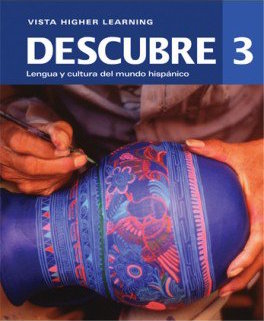
All Solutions
Page 171: Ampliacion
**In pairs, ask each other questions.
Then recommend an ideal trip for your partner based on the results.**
**2.** Do you know how to set fire?
**3.** You know how to cook?
**4.** Do you like to see wild animals?
**5.** Do you like to walk a lot?
**6.** Can you go a week without bathing?
___
**point value** sí / yes (2pt) más o menos / so so (1pt) no (0pt)
*0 – 4 pts* No interest in ecotourism.
*5 – 8 pts* You could do ecotourism.
*8 – 12 pts* What are you waiting to do ecotourism?
0 – 4 pts. Debería visitar las grandes ciudades con museos, teatros y servicios como Singapur o Nueva York.
5 – 8 pts. Podrías visitar pueblos entre las metrópolis y el aire libre porque cuentan con ciertas comodidades pero también puedes visitar varios lugares interesantes a pocos kilómetros de tu hotel u hostal.
8 – 12 pts. Definitivamente deberías hacer un recorrido por el Amazonas. Es compartido por varios países y también encontrarás muchas especies de animales y plantas exóticas.
**Translation**
0 – 4 pts. You should visit big cities with museums, theaters and amenities like Singapore or New York.
5 – 8 pts You could visit towns between the metropolises and the outdoors because they have certain amenities but you can also visit several interesting places a few miles from your hotel or hostel.
8 – 12 pts You should definitely go on a tour of the Amazon. It is shared by several countries and you would also find many species of exotic animals and plants.
**In pairs, read the paragraphs and answer the questions.**
**2.** Are there protected areas in the region where you live? What is its importance for the inhabitants of the area? Do they contain threatened species?
**3.** Do you know other places where you can do ecotourism? Which are?
**4.** What does the expression “the lung of the planet” mean? What other lungs are there? Why is it important to preserve them?
**Answer**
1. El puma fue considerado sagrado por los Incas como símbolo de poder y fuerza.
2. Sí, el Parque Nacional Yellowstone. Es importante para las personas de Wyoming porque atrae muchos turistas. Ahí viven a salvo osos negros y grizzlys, coyotes, lobos, alces y ciervos canadienses o wapitis.
3. Sí, hay varios que pertenecen a Estados Unidos, por ejemplo: Parque Nacional de los Volcanes en Hawai, Parque Nacional de Yosemite en California, Parque Nacional del Gran Cañón en Arizona.
4. Significa que por ser áreas tan grandes y llenas de árboles y plantas, eso ayuda a la oxigenación del planeta. Hay otras áreas que funcionan como pulmón del mundo, como: Pino piñonero, Bosque lluvioso Tropical, Bosque Silencioso. Es importante preservarlos para evitar le fin del mundo.
1. The puma was considered sacred by the Incas as a symbol of power and strength.
2. Yes, Yellowstone National Park. It is important to the people of Wyoming because it attracts many tourists. Black bears and grizzlies, coyotes, wolves, elk and Canadian deer or wapitis live safely there.
3. Yes, there are several that belong to the United States, for example: Volcanoes National Park in Hawaii, Yosemite National Park in California, Grand Canyon National Park in Arizona.
4. It means that because the areas are so large and full of trees and plants, that helps the oxygenation of the planet. There are other areas that function as the lungs of the world, such as: Stone Pine, Tropical Rain Forest, Silent Forest. It is important to preserve them to avoid the end of the world.

